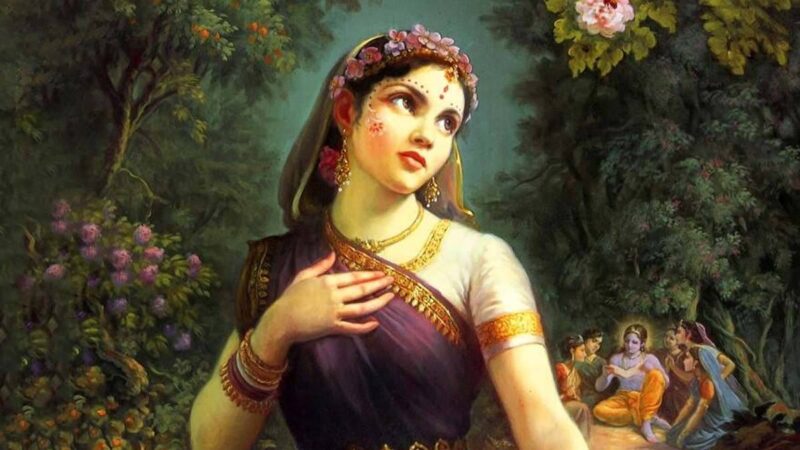In the realm of Gaudiya Vaishnavism, there are several festivals that hold immense significance, such as Balaram Jayanti, Janmashtami, Gaura Purnima, Rama Navami. However, the festival that stands above all, the one without which all other celebrations lose their essence, is **Radhastami**.
The Exclusivity of Radhastami
Radhastami is not just another festival; it is a divine celebration reserved for the liberated ones. Sadhakas (practitioners) although they cannot access the profound depths of Radhastami, are eligible to worship and glorify this auspicious occasion.
The Divine Duo: Radha and Krishna
Radhastami marks the day when Radha graced this world with her divine presence. As Gaudiya Vaishnavas, it becomes our duty to understand who Radha is. But before we delve into the mysteries of Radha, we must define our ultimate goal -God. In this divine journey, Radha is the path and God, or Krishna, is the destination.
Krishna, as defined in the Upanishads by the statement “Raso Vai Sah,” is the embodiment of happiness and bliss. To share this divine bliss with us, Krishna expands Himself as Radha. He condenses all His bliss and gives it a form -Srimati Radha. Thus, Krishna and Radha are one in essence. Without Krishna, Radha is lifeless, and without Radha, Krishna remains unseen.
The Blissful Service of Srimati Rādhārāṇī
Radha, being the embodiment of divine bliss, serves to bring joy to God and His devotees. She reigns supreme and provides the necessary strength to serve Krishna. She knows that true bliss can only be achieved through service to God. Being the embodiment of bliss herself, who better than her knows what service truly means? Thus, she shares her experience and knowledge of service with sincere devotees.
The Essence of Service
Service is a trinity composed of Yagya (sacrifice), Daan (charity), and Tapa (austerity).
-Yagya signifies sacrificing the concept of “I” and letting go of all traces of selfishness.
-Daan involves offering your mind to God -constantly thinking about and planning for His service.
-Tapa represents happily enduring all hardships in God’s service.
Worshiping Srimati Radha
To worship someone means to please them. The best way to please Radha is by sincerely serving her Lord, Sri Krishna -that’s her ultimate desire from us.Let’s pray to Sri Radha for a single-minded service attitude that pleases Krishna.
Let’s borrow an atom from her ocean of service attitude and offer it back to her in the form of service to Krishna.









